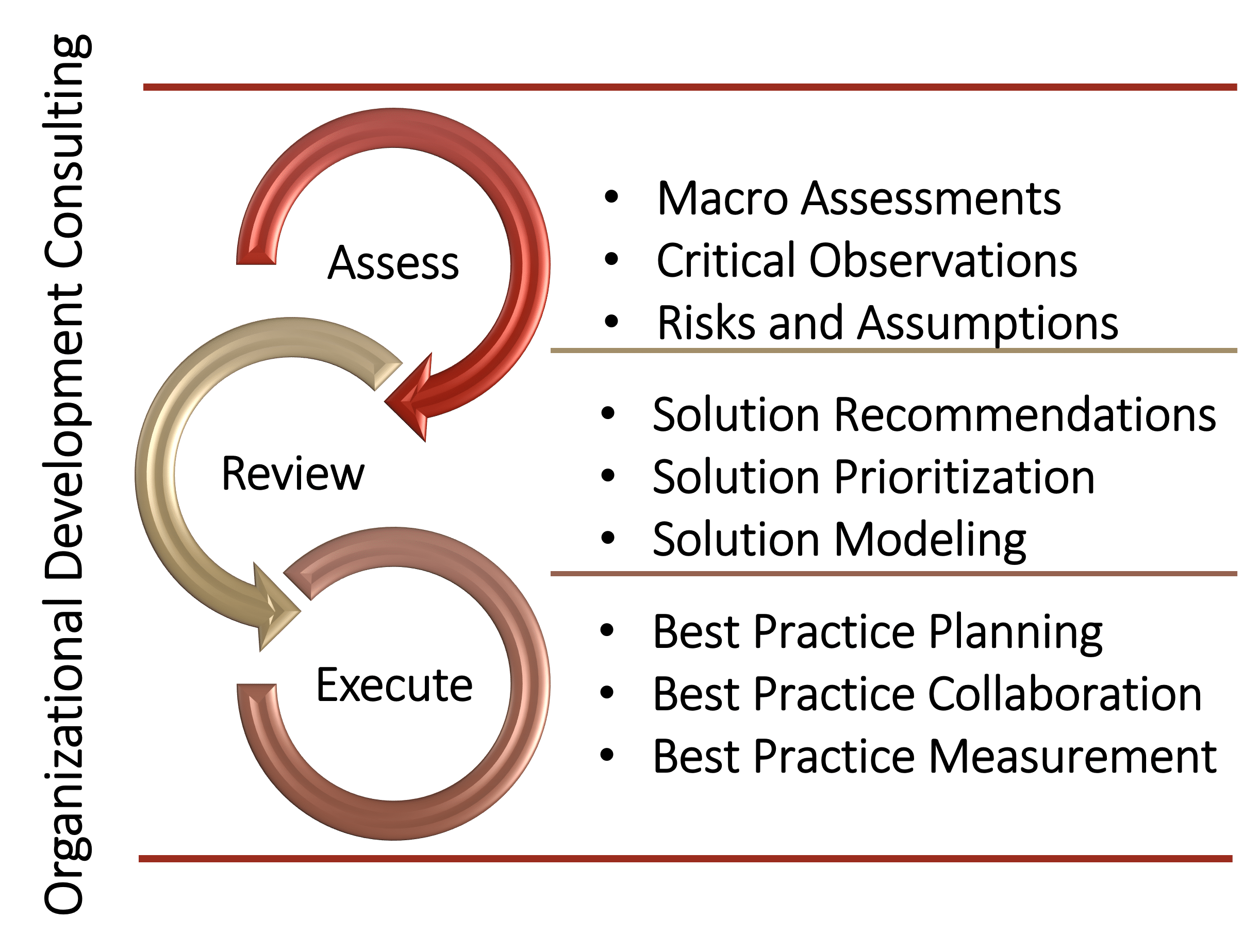Data Management Roadmap and Implementation for Achieving Business Goals
Phase 1: Training and Discovery
It is important to understand what your current data management activities are and to instruct staff in good data management principles that get embedded into everyday jobs.
Phase 2: Development
Develop the areas of data management needed, covering people, process, and technology. Building gradually with small successes will help staff get comfortable with the new tasks.
Phase 3: Continual Maintenance
Scale after development to continually build off your foundation and be comfortable performing without our support.
Why Are Data Management Roadmaps Important for Achieving Business Goals
-
Alignment with Business Goals:
- A formalized data strategy roadmap ensures that the data strategy aligns with the organization’s business goals.
- By defining business objectives, identifying key performance indicators (KPIs), and understanding the target audience, the organization tailors its data strategy to meet specific needs.
- Relevant data collection, management, and utilization drive growth and success by supporting informed decision-making.
-
Identifying Data Gaps and Opportunities:
- Developing a data strategy roadmap involves conducting a data audit.
- This audit evaluates existing data sources, their quality, and relevance.
- It helps identify gaps in data collection and management processes and uncovers new opportunities for relevant data collection.
- Addressing these gaps ensures that the organization collects the right data to achieve its objectives.
-
Resource Allocation:
- A roadmap allocates resources effectively by outlining the necessary steps and investments.
- It ensures that the organization focuses on data initiatives that directly contribute to business success.
- Proper resource allocation maximizes the impact of data-driven efforts.
-
Organizational Alignment:
- The roadmap serves as a guide for everyone in the organization.
- It ensures that all relevant departments and individuals are aligned with the data strategy.
-
Change Management Tool:
-
- Implementing a data management roadmap involves organizational alignment and buy-in. The roadmap serves as a change management tool that enables everyone to understand and support the data strategy from the same perspective.
- When everyone understands their role in achieving the data-driven objectives, collaboration becomes more effective.
Summary
Data management roadmaps act as the GPS to data-driven success, guiding organizations toward their business goals through informed decision-making and effective data utilization. AMS experts can build a methodology and train your staff to leverage data and apply it to create strategic advantage. The most effective way to leveraging our best practice is derived from a cross functional application of validating the requested data, modeling its application and validating its value. Many times, organizations are burdened by too much data and ultimately gain little to nothing from what they have. It is the AMS belief that in any data project we must first determine the viability of what you are looking at, why you are looking at it, and then refine the vision with added perspective. With the onset of Generative AI, we now have an added tool to help with stratification and all of the elements of usability for our datasets.
Organizational Development Consulting
Client-Centric Engagement Model
Each solution found in our catalog can be scaled to meet your organization's needs. Consulting engagements are built on a collaborative three-step process of Assess, Review, and Execute stage gates. This model provides a high value and collaborative approach that allows organizations to measure ROI, performance, and continuous improvement throughout the entire engagement. Our executive level team of consultants will provide actionable and practical recommendations that can be implemented via our collaborative approach to the partnership.

For the Enterprise
- Experience personalized service at scale. AMS has a global reach with the highest degree of expertise across a range of Fortune 500 companies, Government agencies and Global 2000 organizations.
For the Emerging and Middle-Market
- Experience the entrepreneurial spirt that our firm is founded on with a unique blend of expertise to accommodate the unique needs of smaller organizations.
Customize your Consulting Experience
- Align subject matter experts with your industry, region, and culture
- Support solutions with correlating Research
- Accelerate Individual Growth with Performance Coaching
- Supplement solutions with Professional Development Training
- Review Solution Briefings
- Integrate Digital Resources – Thought Leader Interviews – Insights Podcast
Join the ranks of leading organizations that have partnered with AMS to drive innovation, improve performance, and achieve sustainable success. Let’s transform together, your journey to excellence starts here.